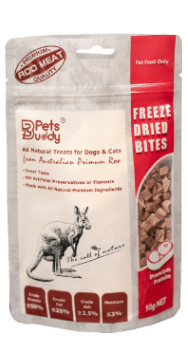According to Brian Hare, PhD, associate professor of evolutionary anthropology at Duke University and founder of Dognition, dog foods marketed as replicating wolves’ raw meat diets actually may satisfy human fantasies more than dogs’ dietary needs.
“When you look at the facts it is absolutely the case that dogs evolved to eat cooked and increasingly starchy foods. We can see that in their genes… The idea that dogs are wolves runs counter to the idea that there are wolves.”
That’s not to say that dogs can’t safely digest raw meat. Humans can handle raw meat too, such as steak tartare or sashimi. However, raw meat may not be ideal or necessary for dogs or people.
“It's true dogs can eat raw meat, but do they need raw meat?” Hare said. “Must they have raw meat? The answer is no. They've evolved tens of thousands of years to eat a cooked and increasingly fibrous, starchy diet as humans became agricultural.
Evidence that dogs and humans evolved similar digestive systems may come from a study published in April by Microbiome. Scientists observed that the variety of microorganisms living in dogs’ digestive systems more closely resembled humans’ gut microbiomes than did the species in pigs or rats.
What’s more, dogs’ digestive systems reacted similarly to humans in response to dietary changes. Specifically, a high-protein/low-carbohydrate diet caused large and reproducible changes in dogs’ microbiomes, compared to a low-protein/high-carbohydrate diet. Those changes were analogous to alteration seen in human guts in other studies.
Although this research wasn’t looking at raw versus cooked food, it does suggest that humans' and dogs' digestive systems share similarities.








